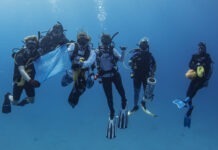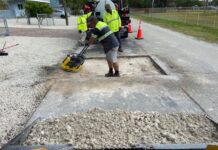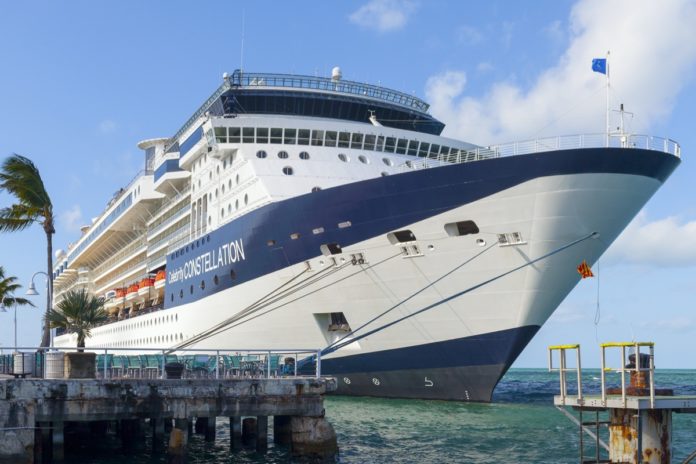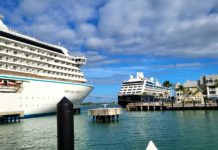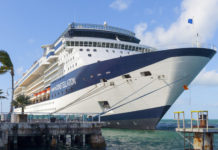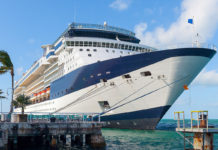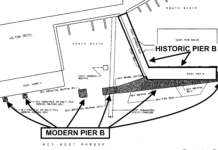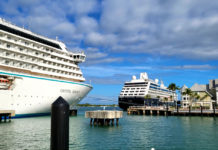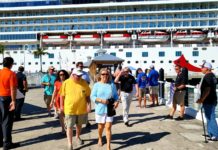Dear Editor:
Now that the legislation superseding the city-imposed restrictions on cruise ship traffic into Key West is reality, what should the community do? To achieve a reasonable perspective, we should look at the dynamics that brought us to this point. Why did the legislature overturn the Key West cruise ship restrictions?
First, the fact that the restrictions effectively canceled 95% of scheduled port calls was deemed unreasonably extreme. When I announced that factual statistic in front of the Senate Transportation Committee, I could see the shock on senators’ faces. The premise that the restrictions were some sort of compromise was shown to be preposterous. A Safer Cleaner Ship (SCS) leader confessed their goal by posting, “This pretty much shuts down the cruise ship industry as we know it in Key West.” The SCS goal of near total destruction of lawful, long-established businesses assured the ultimate breakdown of their initiative.
Even more glaring was the lack of leadership on the issue from the mayor and commission. When the city commission, obligated to function as a de facto Port Commission, failed to call for workshops or dedicated public meetings on the proposed restrictions, it was clear the Key West city commission is a rudderless ship. Instead of taking the lead, city commissioners chose to let ill-informed activists set city policy.
Secondly, the SCS group never corroborated their claims of environmental damage attributed to cruise ship traffic into Key West. Their emotive anecdotes about perceived clearer water and “more friendly fish” were good theater, but legislators charged with making informed decisions affecting the entire state require scientific data.
Not one scientific report supported the SCS environmental damage claims, precisely because those claims are counterfeit. Ironically, the FIU report on turbidity rushed out by SCS enforced the fact that cruise ship traffic causes no significant change to water quality. The FIU study states clearly: “Most surface turbidity has declined over the last 25 years south of Key West, but the drop has not been statistically significant. North of Key West surface turbidity has increased long-term but without statistical significance, either.” Likewise, referring to a sample station in the middle of Key West Harbor: “Station St01: There were no significant changes in 2020 with respect to 2019 in Kd or turbidity.”
Further remarkable evidence, if one cares to look, is the documented existence of robust coral communities attached to our cruise ship piers’ structures and nearby concrete rubble. An independent study of the Navy Mole area inventoried over 730 hard corals and 600 soft corals attached to the concrete structure, of which 96% were healthy. Similar studies were conducted underneath Mallory Pier and Ocean Key House prior to repair operations. Again, thriving communities of corals were documented and photographed. These reports are public – it is remarkable that no reporter or commissioner bothered to read them. Any reasonable observer must conclude that cruise ship traffic into Key West does not harm water quality or marine life.
Third, legislators noticed that the vessel restrictions deliberately excluded ships that accommodate tourists of modest income. SCS admitted in senate testimony their goal of encouraging only “high end” cruise tourists to visit Key West. Intentional or not, the ship restrictions were viewed as exclusionary. The ship size restrictions tainted the referenda as a form of socio-economic prejudice.
Finally, the Constitution denies the authority of local governments to restrict lawful interstate and international commerce. State legislators are charged with making decisions that affect the entire state. They are obliged to interdict local political impulses that are founded in misinformation and recognized as detrimental to the well-being of all Florida citizens.
Now we are back at the beginning. Where shall we go as a community? I suggest we begin with more inclusive, civil dialogue among all concerned parties, hopefully with enlightened leadership from the commission. The way forward should not include callous calls for long-established businesses and seasoned employees to reimagine themselves. No more pejorative tagging of business owners as “greedy” as they strive to save their decades-old family businesses from being canceled. No more unsubstantiated anecdotes about environmental damage from ships. Instead, let us return to the ideal of Key West being an inclusive community.
Opponents of large ships have called for demonstrations against arriving cruise tourists when ships return. People have the right to peacefully protest anything they want. However, if they angrily confront families arriving by cruise ship, they will irretrievably soil the reputation of Key West as a casual, friendly town that welcomes visitors of all types, all backgrounds, all origins, and all choices. If they follow through with demonstrations, they will have destroyed the ideal of One Human Family, yet another disservice to the community they profess to protect.
When cruise ships return to operations, Key Westers can expect to see the most advanced ships coming into our harbor. The industry is constantly upgrading, implementing the newest environmental systems, propulsion technologies and health protocols. My family has been involved in the Key West maritime community for over 100 years. We intend to persevere and continue to serve the community, expediting ship calls and promoting the economic benefits derived from the cruise ship industry and the historical Port of Key West.
John E. Wells
Ships’ Agent (retired)


